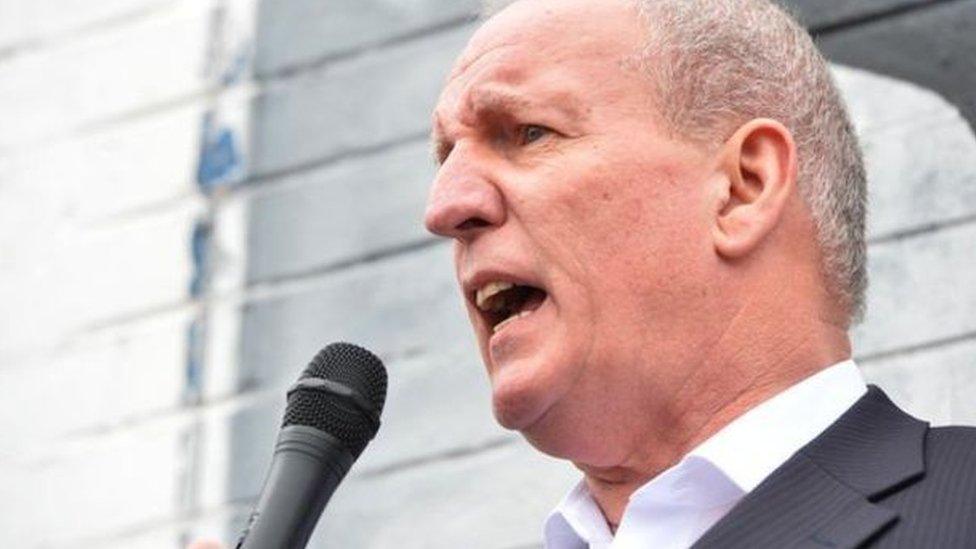Bobby Storey: Senior republican dies following illness
- Published

Bobby Storey was previously chairman of Sinn FУЉin and a close friend of Gerry Adams
Senior republican figure Bobby Storey has died following a period of illness.
Sinn FУЉin president Mary Lou McDonald expressed "deep sadness" at his death, describing him as "a great republican".
The north Belfast man was considered the head of intelligence of the IRA for a period from the mid-1990s and was named as such under parliamentary privilege.
Security sources linked him to several major incidents, including the ТЃ26m Northern Bank robbery in 2004.
The north Belfast man was considered the IRA head of intelligence in the mid-1990s
More recently, he was chairman of Sinn FУЉin.
Mr Storey, who was 64, spent more than 20 years in jail, beginning with internment without trial when he was 17, a year after he joined the IRA in 1972.
In 1981, he was sentenced to 18 years in prison for possession of a rifle following an attack on the Army.
He was a close and lifelong ally of former Sinn FУЉin president Gerry Adams.
When he was released from jail in 1994, Mr Storey was seen as a key individual in selling the peace process to republican hardliners.
Allow Twitter content?
This article contains content provided by Twitter. We ask for your permission before anything is loaded, as they may be using cookies and other technologies. You may want to read and before accepting. To view this content choose тaccept and continueт.
He was arrested twice in recent years.
In 2014, he was questioned about the disappearance of Jean McConville.
A year later, he was detained over the murder of Belfast republican Kevin McGuigan - at the time, Mr Storey was the chairman of Sinn FУЉin.
Following his release without charge, he famously likened the IRA to a butterfly that had flown away.
Bobby Storey was a lifelong ally of former Sinn FУЉin president Gerry Adams
In a statement following news of his death, Mary Lou McDonald said: "Bobby was extremely committed to the pursuit of a united Ireland with equality and social justice for all.
"He will be greatly missed. Today we have lost a great republican."
Tributes have also been paid by Sinn FУЉin vice-president and Deputy First Minister Michelle O'Neill, who said he "played a vital role in developing the peace and political process over the past two decades".
Ms O'Neill said: "He was a committed, selfless comrade, whose contribution to the struggle for national liberation earned him the full respect of his generation.
"He was an enduring tower of strength and will be deeply missed by us all."
- Published13 September 2015